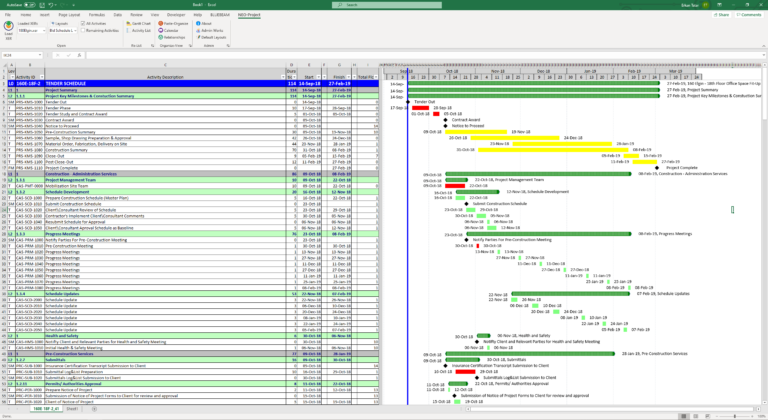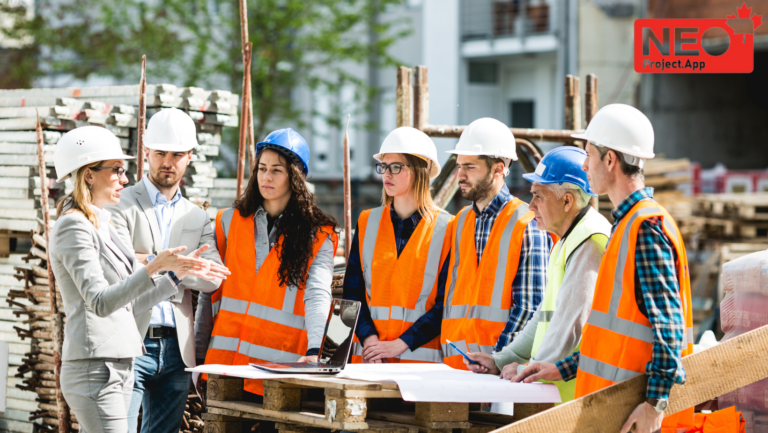Navigating the Technological Frontier: Exploring the Latest Innovations Shaping the Construction Industry
In the ever-evolving realm of construction, technological advancements are driving unprecedented levels of innovation, efficiency, and sustainability. From pioneering materials to revolutionary methodologies, the industry is witnessing a profound transformation that is reshaping the way we conceptualize, design, and build our built environment. In this comprehensive exploration, we’ll delve deeper into some of the newest and most impactful technologies that are revolutionizing the construction landscape.
3D Printing: At the forefront of innovation stands 3D printing, a disruptive technology that has garnered significant attention for its potential to revolutionize construction processes. By extruding layers of specialized materials, such as concrete or plastic, 3D printers can fabricate intricate structures with unparalleled precision and efficiency. This additive manufacturing approach offers a myriad of benefits, including reduced material waste, shorter construction timelines, and enhanced design flexibility. From modular housing to bespoke architectural features, 3D printing is opening up new possibilities for creativity and sustainability in construction.
Building Information Modeling (BIM): Building Information Modeling, or BIM, has emerged as a cornerstone of modern construction practices, providing a collaborative platform for architects, engineers, and contractors to work together seamlessly throughout the project lifecycle. By creating a digital representation of the building and its components, BIM facilitates improved coordination, clash detection, and decision-making, resulting in more efficient project delivery and enhanced stakeholder engagement. From initial design phases to facility management, BIM is transforming the way we plan, design, and manage construction projects, ultimately leading to cost savings, time efficiencies, and higher quality outcomes.
Drones: Unmanned aerial vehicles, or drones, have become indispensable tools in the construction industry, offering a bird’s-eye view of project sites and enabling stakeholders to gather valuable data and insights with unprecedented speed and accuracy. Equipped with high-resolution cameras and advanced sensors, drones can perform a wide range of tasks, including aerial surveys, progress monitoring, and site inspections, with minimal disruption and risk. By leveraging drone technology, construction professionals can streamline project workflows, improve safety protocols, and make data-driven decisions, ultimately leading to more efficient project delivery and enhanced project outcomes.
Virtual Reality (VR) and Augmented Reality (AR): Virtual Reality and Augmented Reality technologies are revolutionizing the way we design, visualize, and experience construction projects, offering immersive and interactive tools for stakeholders to engage with digital models and simulations. VR enables users to explore virtual environments and experience designs in 3D, while AR overlays digital information onto the physical world, allowing for on-site visualization, training, and maintenance tasks. By incorporating VR and AR into the design and construction process, stakeholders can gain a deeper understanding of project requirements, identify potential issues early on, and collaborate more effectively, leading to improved project outcomes and enhanced client satisfaction.
Modular Construction: Modular construction is gaining traction as a cost-effective and sustainable alternative to traditional building methods, offering faster construction timelines, reduced material waste, and enhanced quality control. By prefabricating building components off-site in a controlled environment, modular construction minimizes on-site disruptions and streamlines the construction process, resulting in significant time and cost savings for project owners. From residential developments to commercial complexes, modular construction offers a versatile and scalable solution for a wide range of construction projects, while also reducing environmental impact and increasing energy efficiency.
Robotics and Automation: Robotics and automation technologies are revolutionizing construction by automating repetitive tasks, increasing productivity, and improving safety on job sites. From bricklaying robots to autonomous construction vehicles, these advanced technologies are reshaping the way we build, allowing for faster construction timelines, higher quality outcomes, and improved worker safety. By incorporating robotics and automation into construction processes, companies can streamline workflows, reduce labor costs, and mitigate project risks, ultimately leading to more efficient and sustainable construction practices.
Smart Materials: Smart materials, such as self-healing concrete, thermochromic coatings, and energy-efficient glazing, are transforming the performance and sustainability of buildings, offering enhanced durability, energy efficiency, and occupant comfort. Self-healing concrete, for example, contains microcapsules of healing agents that are activated when cracks form, repairing the damage and prolonging the lifespan of the structure. Thermochromic coatings change color in response to temperature changes, helping to regulate indoor temperatures and reduce energy consumption. Energy-efficient glazing reduces heat transfer through windows, improving thermal insulation and reducing heating and cooling costs. By incorporating smart materials into construction projects, builders can create structures that are more resilient, sustainable, and cost-effective, while also enhancing the comfort and well-being of occupants.
NEO-Project Toolbox: Introducing NEO-Project Toolbox, the latest innovation from NEO-Project.Consulting that’s revolutionizing the way construction professionals approach their day-to-day operations. Designed to seamlessly integrate with existing workflows, NEO-Project Toolbox offers a comprehensive suite of in-house tools to streamline construction management, project planning, scheduling, and project control tasks without disrupting established processes. From intuitive interfaces to powerful analytics, NEO-Project Toolbox empowers construction professionals to make informed decisions, optimize resources, and drive project success with greater efficiency and ease.
In conclusion, the construction industry is undergoing a technological renaissance, driven by a relentless pursuit of innovation, sustainability, and efficiency. By embracing the latest advancements in technology, materials, and methodologies, construction professionals can unlock new possibilities for creativity, collaboration, and success. From 3D printing and BIM to drones and modular construction, the possibilities are limitless, and the future is bright for those who dare to innovate and push the boundaries of what’s possible in construction. As we embark on this journey of discovery and transformation, let us harness the power of technology to build a better, more sustainable future for generations to come.






